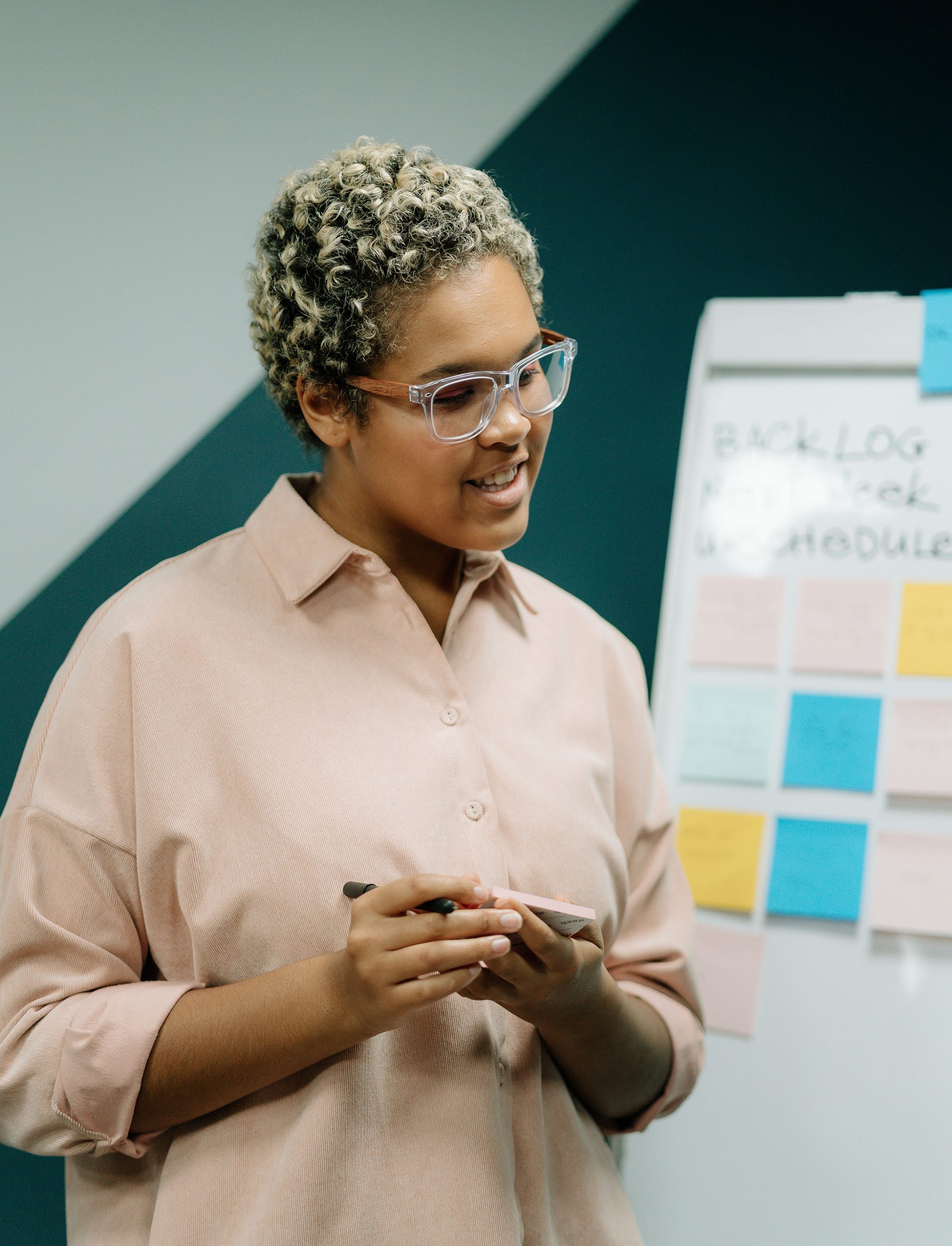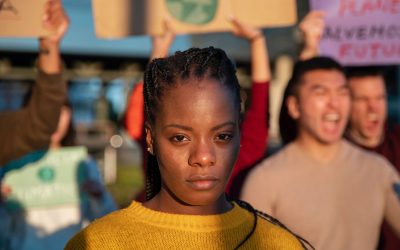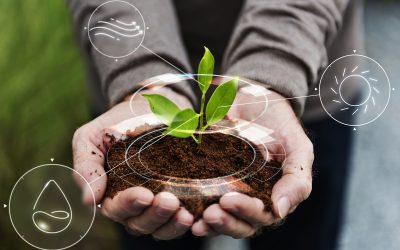Omega Resilience Awards

What are the Omega Resilience Awards (ORA)?
The Omega Resilience Awards (ORA) provides fellowships, research grants, and media creation to support new models of thinking, leadership, communication, and engagement in response to the challenges of the global polycrisis.
The ORA Fellowship is designed to identify visionary communicators, artists and public intellectuals who can help society imagine what it will take to respond to the global polycrisis and chart a path toward a more resilient future.
Who are the organizers of Omega Resilience Awards (ORA)?
Omega is a project of Commonweal, a US-based NGO with 50 years of engagement and accomplishment in diverse fields associated with sustainability including environmental health, marine resource management, and integrative medicine.
To recruit and manage the cohorts, Omega is partnering with three organizations that will serve three target geographies: Latin America, South Asia, and Africa. The partner organizations include:
- Asociacion Argentina de Abogados/AS Ambientalistas in Argentina
- Start Up! in India
- Health of Mother Earth Foundation in Nigeria

About ORA – Africa Fellows
Who is a potential ORA-Africa Fellow?
ORA-Africa will be focused primarily on identifying young (under 45) communicators, artists, and public intellectuals who are based in Africa and are engaged in translating for their readers, viewers, and listeners, the connections between seemingly disparate phenomena – climate, water, health, and migration – and how they interact within the larger system that comprises the polycrisis.
What does the polycrisis look like in a given region, country, or community? And what shape does a resilient response take? ORA-Africa is looking for Fellows who are engaged in developing a body of work around these questions.
The Global Polycrisis
What is the global polycrisis?
While a relatively new term, the global polycrisis has become widely accepted as a shorthand means of referring to the interaction of a broad array of environmental, social, technological, and economic/financial stressors e.g., climate change, increasing concentration of capital, decay in democratic governance, escalating rates of biodiversity loss, and pandemics.
These stressors interact unpredictably creating future shocks of ever greater frequency and force. They result in a wide array of impacts, contributing to ever greater movements of people seeking food, shelter, and safety. The cumulative effect is a cascade of crises that is devastating to the biosphere and threatens humanity’s future.
The climate emergency, the mismanagement of the response to the pandemic, and the war in Ukraine are all current manifestations of the interlocking dysfunction characterized by the polycrisis.
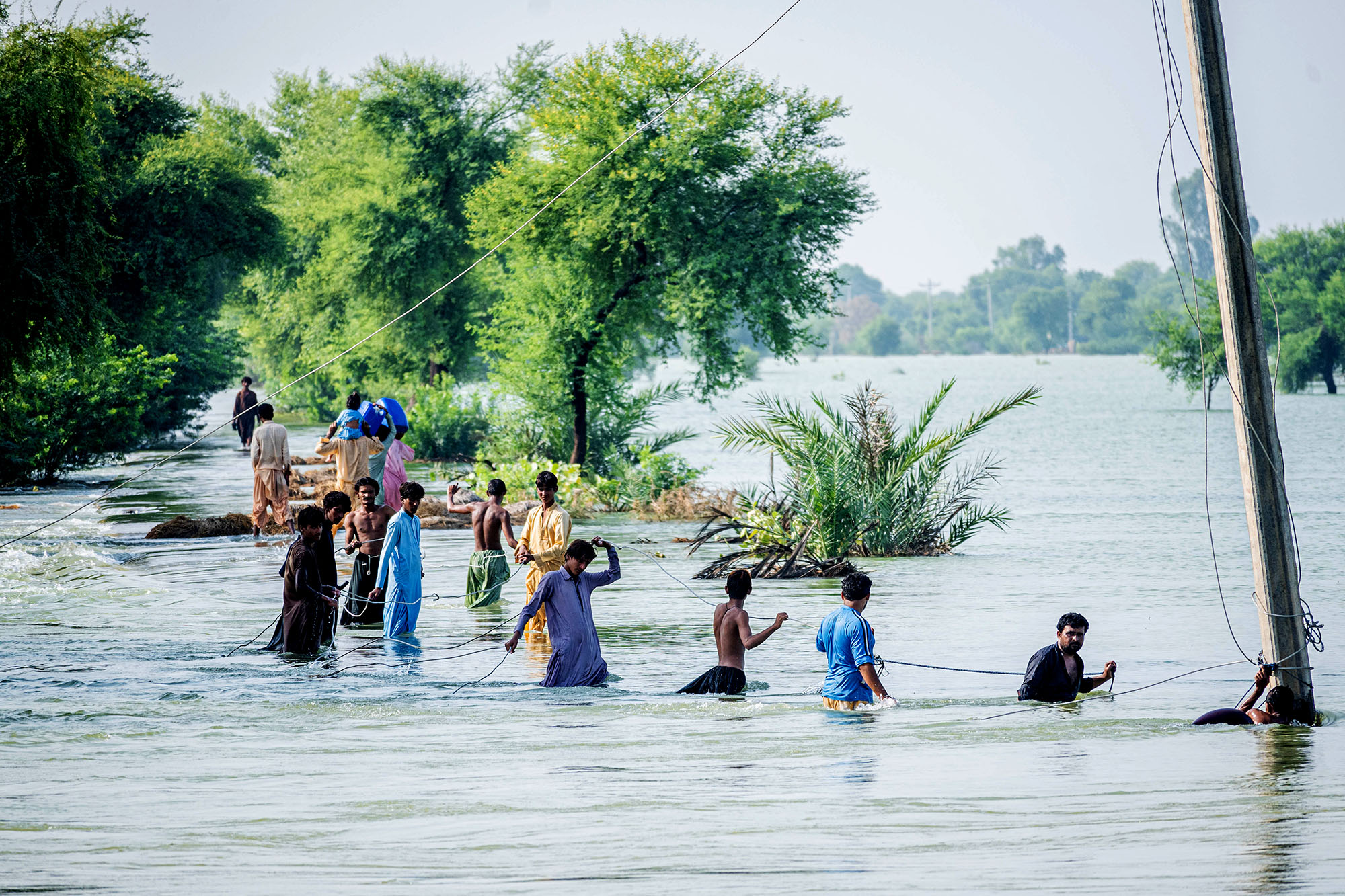

How do ORA-Africa Fellows relate to the global polycrisis?
The ORA-Africa Fellows program is looking for people drawn from diverse walks of life who understand that the old approach to solving problems in silos is no longer viable. Instead, we need to apply a systems-thinking lens.
While we realize that communicating the full weight of the polycrisis can be intimidating and result in a sense of overwhelm, we’re seeking individuals who can render complexity comprehensible and serve as sense-makers for their readers, viewers, and/or listeners.
ORA-Africa Fellows are people who can facilitate communities to make meaning of the impacts of the polycrisis; take action to slow, if not reverse, the damage by the global polycrisis; and outline what a more resilient future might look like.
Candidate Qualification

Who is a good-fit Fellow?
Through the ORA-Africa Awards we support the career development, creativity and experimentation of public intellectuals engaged in various aspects of the polycrisis across the African continent.
In assessing candidates for the Fellowship, we will be looking at how the individuals are:
- Situating their work in response to the global polycrisis;
- Communicating and engaging with diverse audiences on the challenges posed, and the opportunities for action;
- Engaged in movements and struggles in their communities.
- Facilitating and enabling communities towards action and transformation.
What are the criteria for identifying ORA-Africa Fellows?
Candidates can be drawn from any walk of life – artist, activist, businessperson, journalist, academic, media, technology, civil society, publishing, law or from the public sector.
Their work could intersect across many themes of climate change and polycrisis – environment, migration, gender, agriculture, food security, urban settlements, insecurity and terrorism, displacement, prejudice, and discrimination etc.
The candidate should be engaged in promoting community/sectoral resilience, with work that inspires the community/audience to act or respond to polycrisis.
The candidate should be at a stage in their professional development and/or community activism where this Fellowship helps them advance in some fashion.
Candidates who are not already well-established with robust global networks and resources will be preferred.

Is there an age limit for an ORA-Africa Fellow?
ORA-Africa Fellows should be above 18 years and below 45 years of age. We are looking for applicants who are mid-career and at an inflection point; specifically, those who have some record of prior success but also great potential for future increased impact.
Fellowship Updates
Call for Applications for Omega Resilience Awards Africa (ORA-A) Fellowship 2025
Applications are now open for the Omega Resilience Awards - Africa (ORA - A) Fellowship Programme for the 2025 cohort. Applications are invited from visionaries, activists, academics, artists, IT specialists, communicators, organisers and...
Commencement of the Omega Resilience Awards Africa (ORA-A) Fellowship 2024
After a rigorous selection process seven (7) fellows from seven (7) African countries have been selected for the Second ORA A cohort. Omega Resilience Awards and Health of Mother Earth Foundation (HOMEF), is very pleased to announce the commencement of...
Call for Applications for Omega Resilience Awards Africa (ORA-A) Fellowship 2024
This is a call for applications into the Omega Resilience Awards - Africa (ORA - A) Fellowship programme for 2024. Applications are invited from visionaries, activists, academics, artists, communicators and organisers involved in movements or struggles...
ORA Africa Cohort 2024
Meet the Fellows
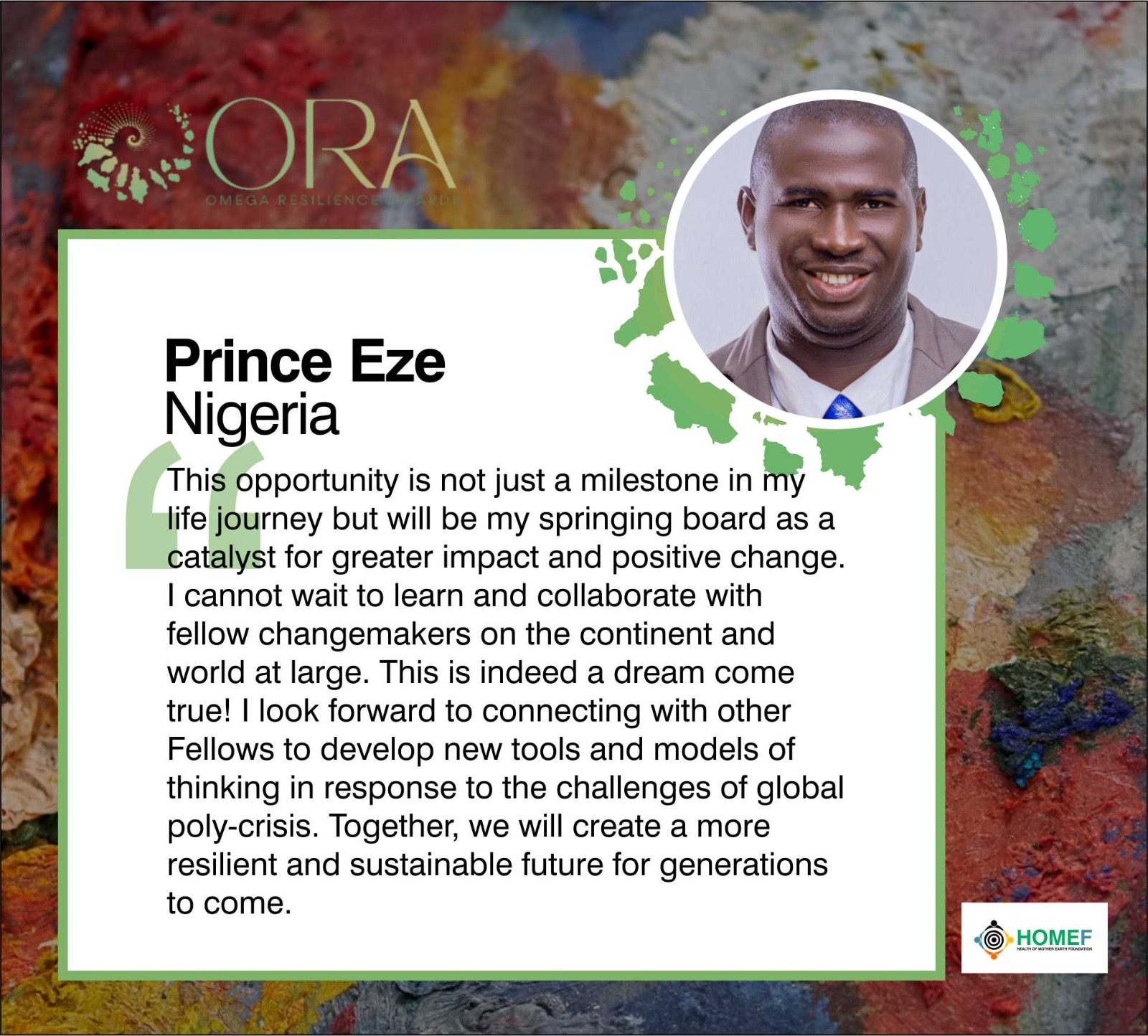
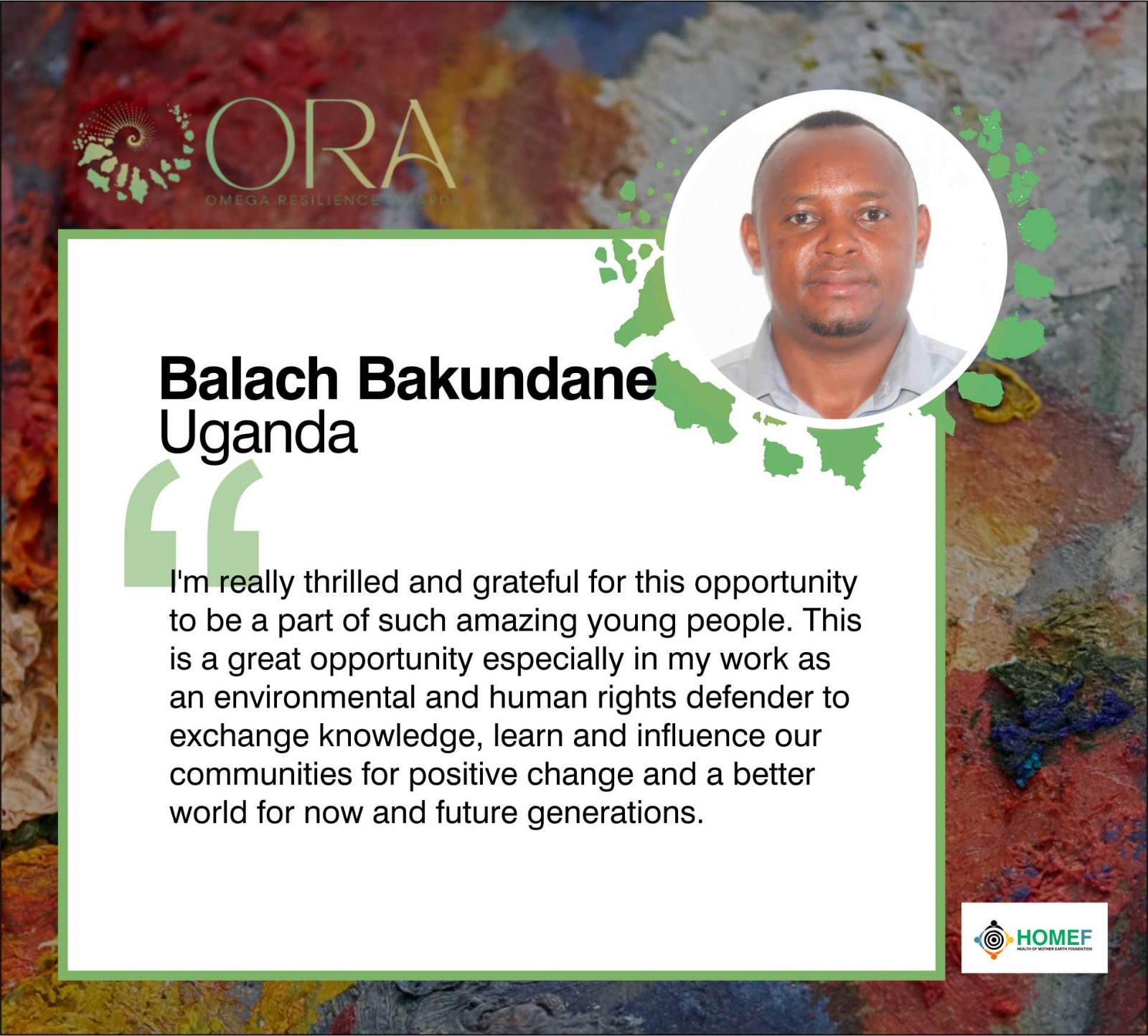
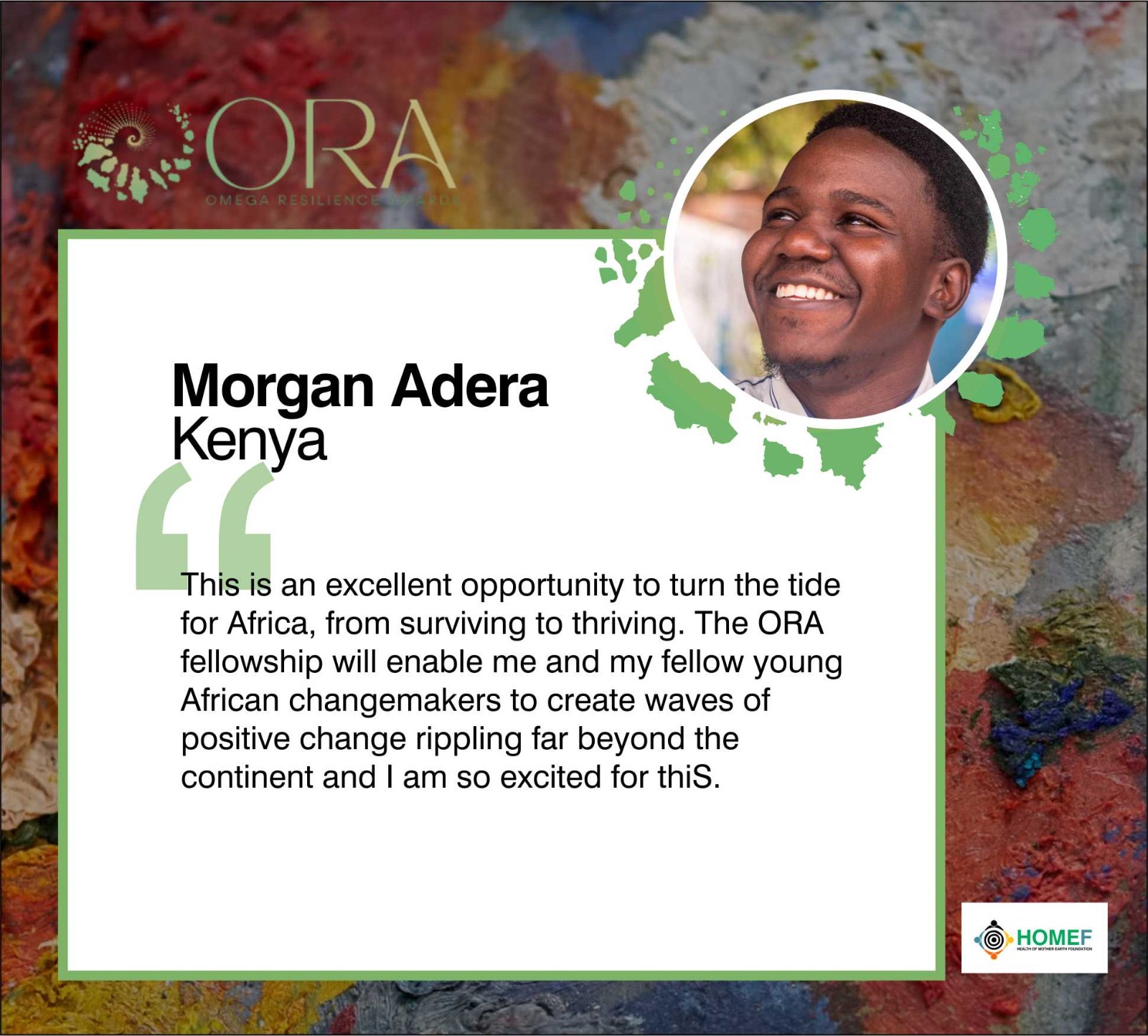
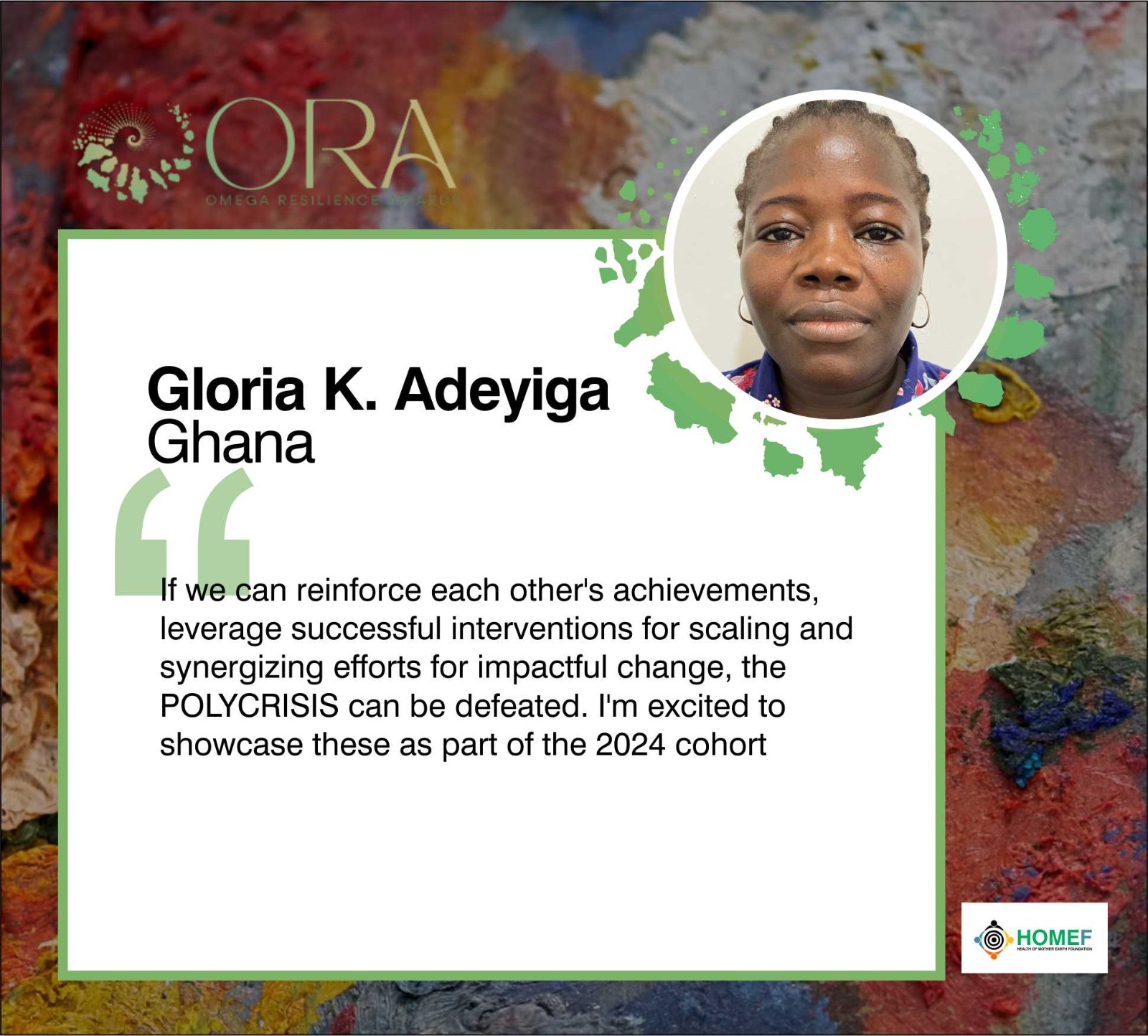
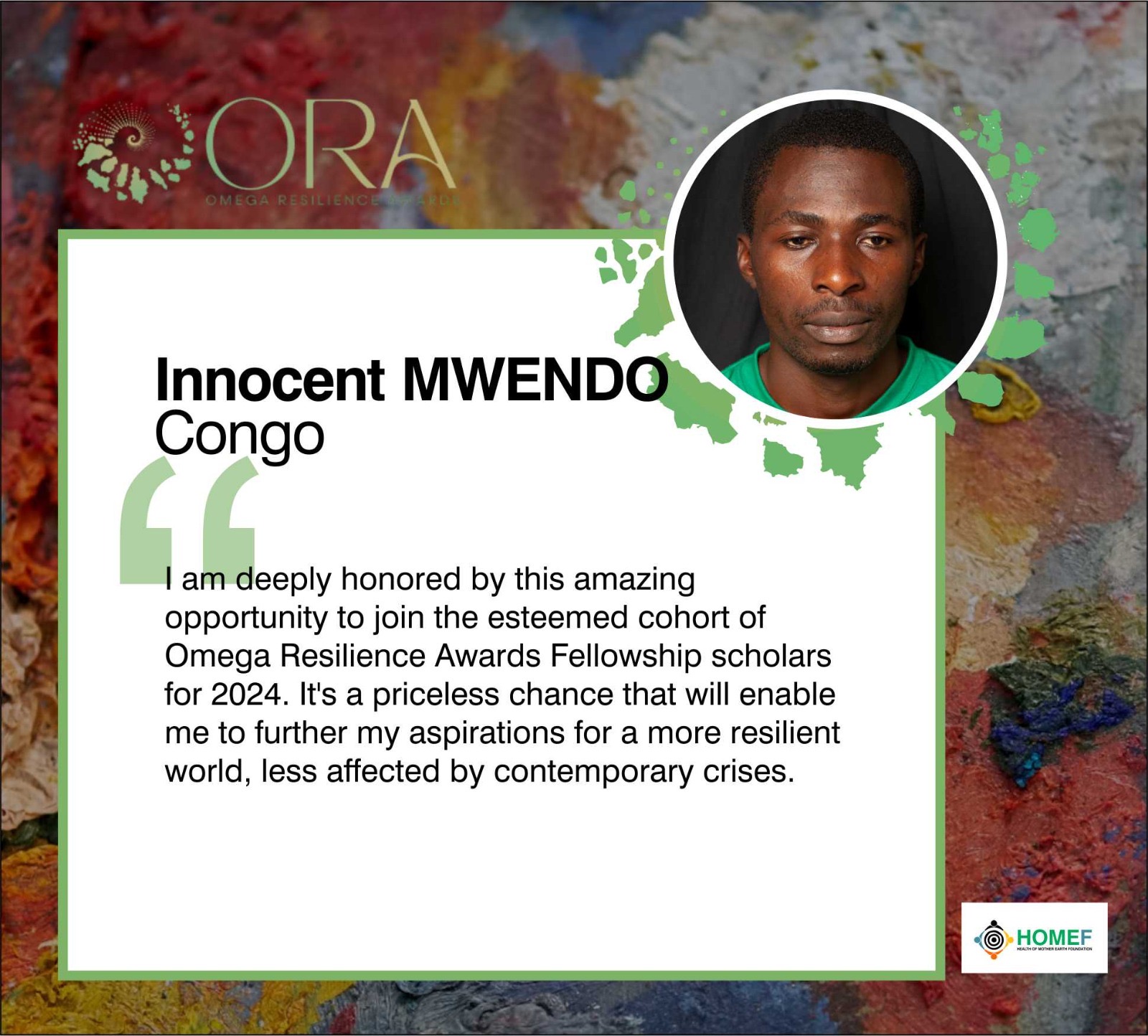
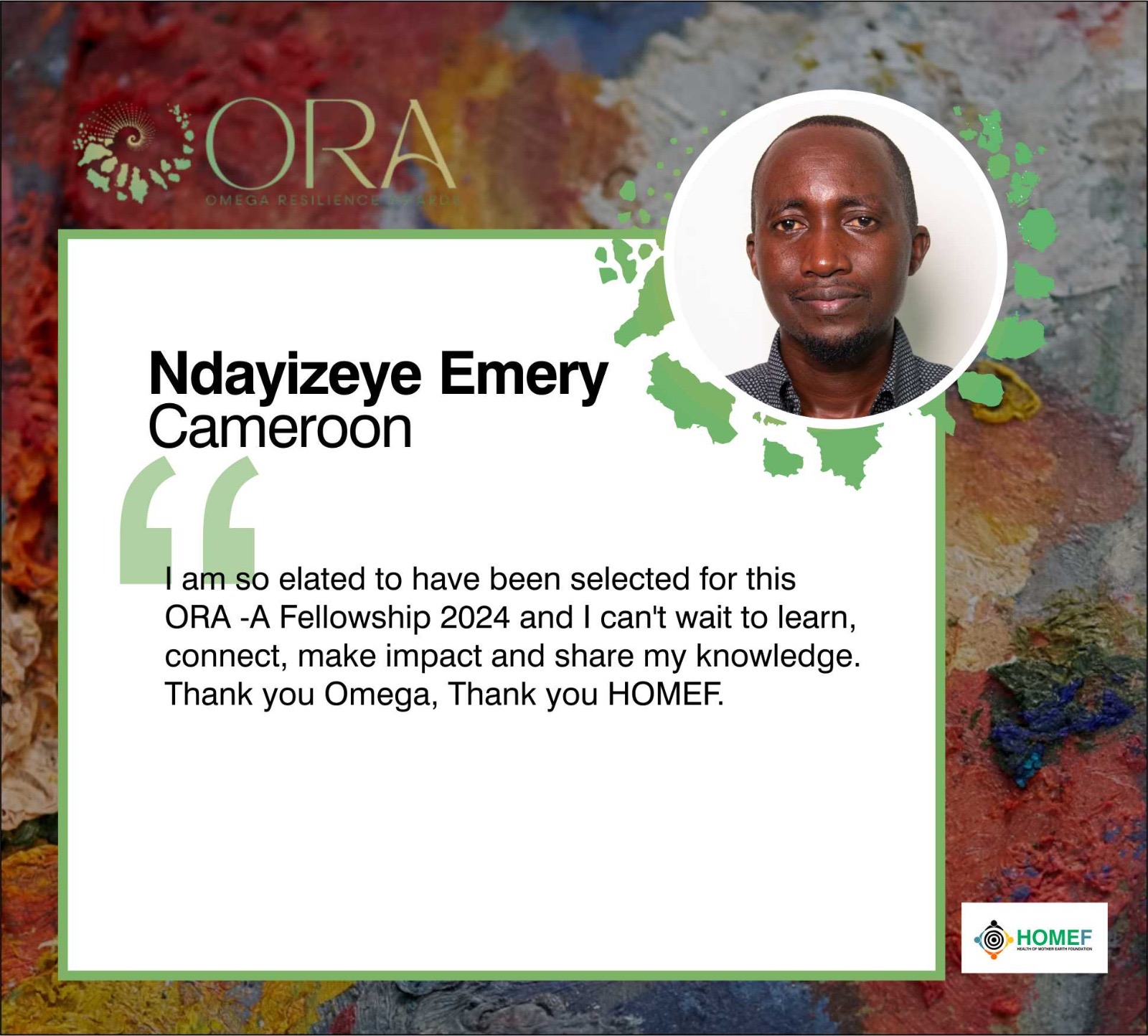
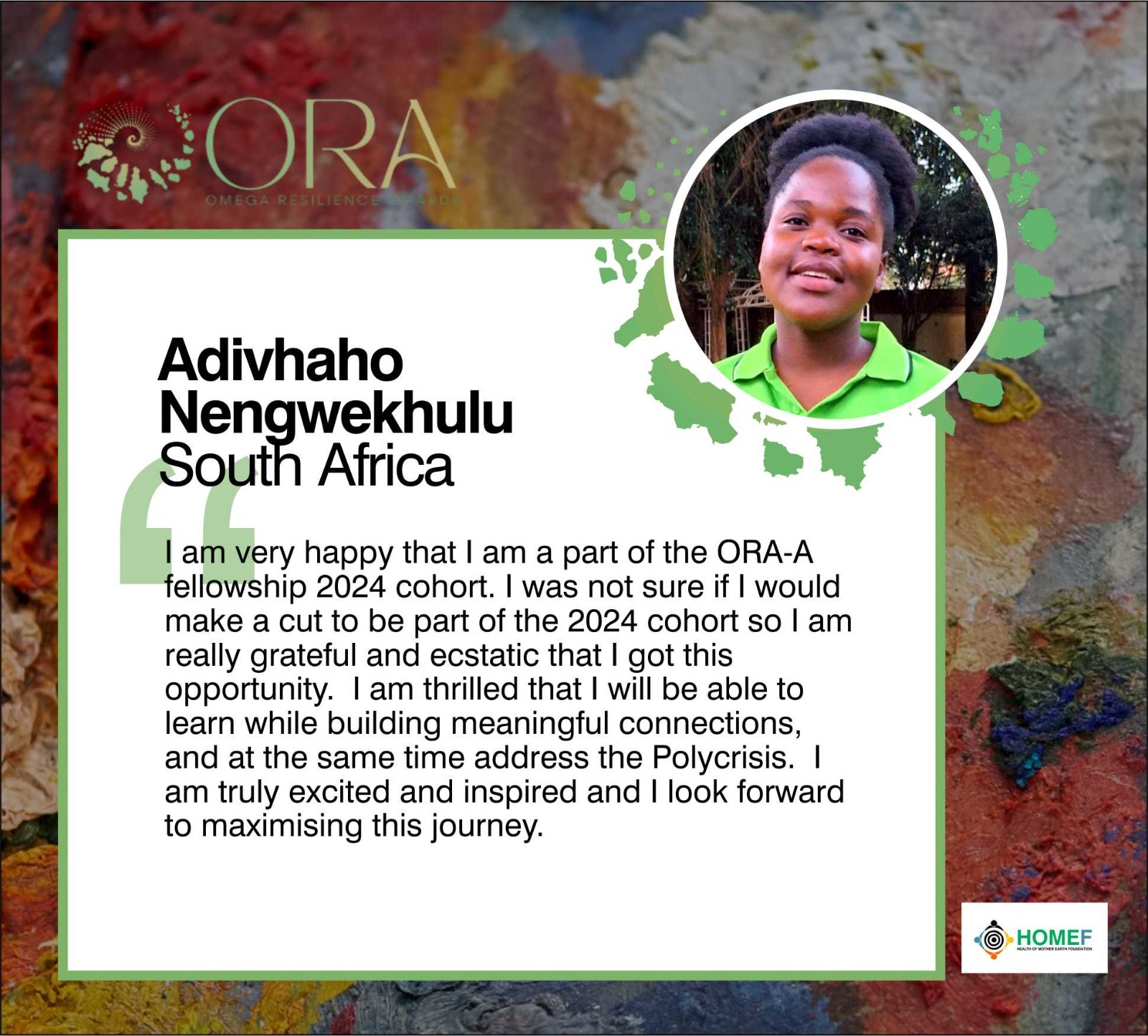
Fellow Benefits & Expectations
What are the benefits of the Fellowship to the ORA-Africa Fellow?
Each cohort of ORA-Africa fellows will comprise 7 fellows.
Each Fellow will receive an award of $10,000 which they can use to advance their work. The Fellowship stipend will be for one-year, although we hope that many Fellows will choose to stay engaged as ORA-Africa Alumni.
The ORA-Africa Fellowship will be structured as a learning community and we will ask Fellows to determine both shared learning agendas and, where appropriate, research project(s) of
interest to each cohort.
Omega will link the ORA-Africa Fellows to each other as part of its long-term intention to build a global learning community around strategies to promote resilience in the face of the polycrisis.
As useful and desired, Omega and HOMEF will connect Fellows with leading and relevant academics and analysts. We will disseminate the work of Fellows through our network of funders, NGOs, and academic allies. In addition, Fellows will have opportunities to present their work in both NGO and funder forums moderated by Omega, HOMEF and other allied networks.
In turn, Omega and its partners expect to gain a deeper understanding of how polycrisis is affecting different regions and what messages inspire action and hope.


Kindly find the link to the 2024 Application/Nomination Call here
Questions you may have
What is the nomination/application and selection process for ORA-Africa Fellows?
ORA-Africa Fellows will be chosen through a 4-step nomination/application and selection process.
- Nomination/Application: ORA-Africa receives nominations/applications from nominators or applicantsbased on the Fellowship criteria.
- Selection: The ORA-Africa team reviews the nominations/applications to ensure eligibility, fit and approves selected candidates for vetting by the ORA-A’s Advisory board.
- Short List: The ORA-A’s Advisory Board and ORA Global team further reviews the applications to announce a Short List.
- Finalist Announcement: The ORA-A’s Team announce the selected Fellows and invite them to meet the ORA-A Advisory Board.
Who are the nominators, and how are they chosen?
Nominators are drawn from all works of life who can identify and suggest promising candidates. The focus is to expand beyond the usual networks to identify a diverse, eclectic, and high-potential pool of nominees.
Does someone need to be nominated to be able apply?
No, there is a direct application link.
If someone is nominated already, should they still apply?
How well do nominators need to know a candidate to nominate them?
We accept nominations of candidates that nominators know very well and of candidates that nominators know less well.What matters is that we know the relationship between nominator and nominee. The ORA-A team will do additional exploratory work to vet a candidate.
Should nominators tell potential Fellows that they are being nominated?
Nominators have the choice to tell potential Fellows that they are being nominated. They can also nominate candidates anonymously. Once nominations have been reviewed, the ORA-A Team will reach out to qualified nominees if there is further need to.
Thank you for your interest in the ORA Fellowship
For further enquires send an email to
To know more, visit

